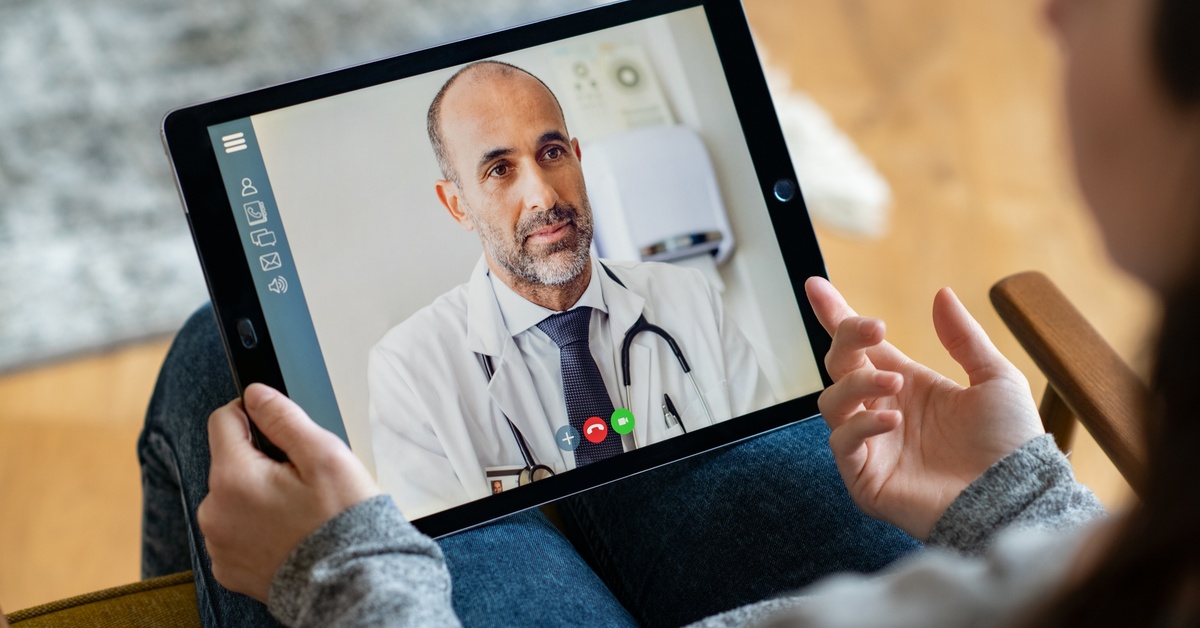What To Expect From Telehealth Medication Consultations

Telehealth services make it easier and more accessible for people to use technology to get high-quality, professional care. One of the most beneficial options for these online services is providing people with medication consultations to help them get the prescriptions they need in a convenient, accessible way.
For those considering telehealth, it’s normal to wonder what to expect from medication consultations and how the appointment process works. Understanding the steps can help you approach the experience with confidence and clarity. Mind Rx Group is here to give you a better idea of what you may encounter and walk you through the different stages of your consultation.
Booking Your Telehealth Consultation
The first thing you need to do is schedule a telehealth appointment with a health care provider. Many telehealth providers offer user-friendly platforms for online scheduling, while some allow bookings over the phone.
You will likely need to provide basic personal and medical information to help your practitioner understand your needs. Depending on the platform, you may need to download an app or create an account.
Telehealth providers often offer flexible scheduling, including evenings and weekends, making it easier to pick a time that fits your schedule and lifestyle. You may also have the option to select a specific practitioner if the platform provides multiple health care professionals.
Preparing for Your Appointment
After booking the appointment, you can do some prep work to make the process go more smoothly. First, put together a list of current medications you take, including supplements, over-the-counter drugs, and prescription medications. This information will help the health care provider gain a more comprehensive view of your medical history.
Take note of symptoms or issues you’re experiencing, and if possible, how long you’ve had them and whether they’ve worsened or improved. Providing your specialist with more details can help them gain a better understanding of your concerns and make the best decisions.
If you know of potential medication options that you want to talk about during your appointment, make a note of those too. Feel free to ask questions about potential side effects or concerns. You want to make the most of your time with the provider, so preparing some questions and talking points before your first meeting can prove especially beneficial.

Logging Into Your Telehealth Platform
You may conduct your appointment through a smartphone app, web browser, or even custom software. Most platforms send an appointment reminder, so check your email and make sure you can log in properly before your appointment begins.
Logging in usually takes you to a virtual waiting room where your provider will join the consultation. Certain platforms may have you fill out a form or acknowledge privacy agreements before your appointment. This step is routine and ensures that your session complies with healthcare regulations, such as protecting sensitive patient information. Try to give yourself plenty of time to get everything done and make sure you don’t have technical issues.
The Telehealth Consultation
Most telehealth consultations are straightforward. Your provider will start by reviewing your medical history and asking you a few basic questions. This process is similar to what you would experience at an in-person clinic or a face-to-face consultation. The provider may inquire about symptoms you’re experiencing, past treatments, and conditions you’ve been managing.
Many telehealth specialists will take the time to ask you about your physical and mental health, depending on the details and context of your consultation. You may have to answer questions about your lifestyle habits, stress levels, or other elements that may contribute to their decision regarding which medications to prescribe.
Discussing Medication Options
Your health care provider will consider the details and information that you give them to recommend the best options available. They’ll outline the benefits and risks of each medication, as well as considerations specific to your individual circumstances.
This is the perfect time to discuss potential side effects, drug interactions, and other questions or concerns you may have. You want to be as open and transparent as possible with your medical history and current prescriptions, as they will impact your provider’s recommendations. Your provider may also take other factors into consideration, like your lifestyle, work schedule, or sleeping patterns.
E-Prescriptions and Medication Delivery
One thing to expect from telehealth medical consultations is the subject of e-prescriptions. Instead of writing a physical copy, your provider can send a digital prescription to your pharmacy of choice. This format eliminates the need to pick up a handwritten form, making the process of filling your prescription faster and more efficient.
Depending on the platform, some providers partner with delivery services that can bring your medications right to your doorstep. This option is particularly beneficial for those living in remote regions or who have physical limitations that may prevent them from going to a pharmacy. Your provider can guide you through the steps to set up these deliveries if that service is available.
Most providers send out a text or email notification to confirm your prescription and delivery estimates. Double-check the details of your e-prescription, such as the pharmacy location, to avoid errors or delays. Contact your provider immediately if you suspect an issue with your prescription.

Follow-Up Appointments
Many medical issues require scheduling follow-up appointments, so this is a major aspect of telehealth care. These sessions allow providers to check the effectiveness of your prescriptions and address potential reactions or side effects as they occur. Your provider may suggest a follow-up timeline depending on the specifics of your treatment plan or its duration.
Follow-ups are also an opportunity to recalibrate your medication plan if issues arise. If you feel like you need to adjust your dosage or want to bring up concerns, a follow-up appointment is a great chance to talk to your provider and fine-tune the details of your treatment to make it more effective. Many telehealth platforms make booking follow-ups simple, often allowing patients to schedule online.
Building a Long-Term Relationship With Your Provider
Telehealth services make it easy to establish ongoing communication with a provider, making it a great way to engage in long-term treatment plans. Consistency can help with your care, especially when dealing with chronic conditions or ongoing mental health treatment. The more you work with a specialist, the more you develop a sense of trust, which makes it easier to maintain communication.
Discover how Mind Rx Group can support your mental health journey with expert telehealth medication management. Take control of your well-being today by connecting with our dedicated providers, who deliver personalized care from the convenience of your home. Schedule your first consultation with Mind Rx Group to experience the difference tailored support can make.